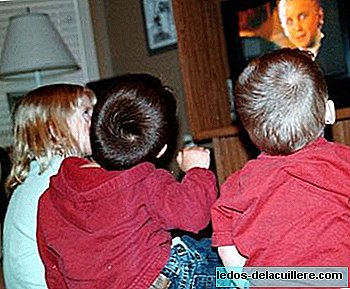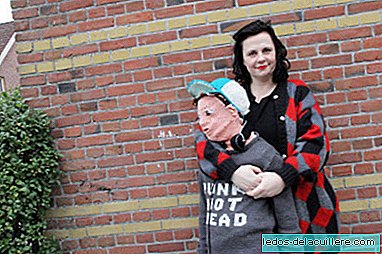According to the Spanish Federation of Associations for Assistance to Attention Deficit Hyperactivity Disorder (ADHD), it is estimated that between 2% and 5% of the child population suffers from this disorder, which, however, for some experts not only does not exist, but that its diagnosis can have negative consequences for the child.
Marino Pérez, a specialist in Clinical Psychology and Professor at the University of Oviedo, is co-author of the book "Returning to normality", where he demystifies ADHD by saying that Children's behavior is not a disease but one more challenge in their education. We have talked with him about this disorder and why he does not consider it to exist.
Is there or does not exist ADHD?
ADHD It is a diagnosis that lacks a clinical entity, without genetic, neurobiological or psychological bases that justify it. On the contrary, the behaviors on which the diagnosis is made (improperly considered “symptoms”) can be understood in the normal context of children's development, family circumstances and current life forms themselves rushed, hyperactive, with attention scattered and so.
"The fact that it is diagnosed a lot does not mean that it is a clinical entity"
A diagnosis of the nineteenth century was drapetomania, an alleged mental illness suffered by black slaves consisting of "cravings for freedom" and expression of feelings against slavery. Homosexuality still figured in the 1970s as a mental illness.
The diagnosis of ADHD fulfills a number of functions, such as:
Reassure parents desperate for the pressure and biased information they receive
Label children who "bother" in class and / or do not perform properly in school
This "tag" sometimes serves schools for get support classrooms
And the ADHD label too benefits a whole business of the pharmaceutical industry and of professionals in turn beneficiaries of it as "benefactors" of the cause
If there is no ADHD, how and why do some professionals diagnose and treat it?
The diagnosis is based on preconceptions and tautological reasoning, as imperceptible as infallible. The diagnosis is usually based on reports from parents (and teachers) who report that the child "often":
is distracted,
it moves so much,
don't wait turn,
does not attend ...

The parents wonder what happens to the child who is so distracted and the clinician tells them that it is because he has ADHD. If we ask the clinician why he knows that child has ADHD, he will say "because he is very distracted." And so in loop.
The worst thing is that from the diagnosis the others already see the child as an ADHD (reduced to “symptoms” and seen as “sick”), and the child himself ends up internalizing the condition assigned to him and behave "tdahmente".
"If he misbehaves it is because of ADHD and if he behaves well it is because of the medication: he neither learns to take responsibility for" the bad "nor does he attain self-esteem for the good."Why are so many children diagnosed with ADHD in recent years?
I think parents should resist receiving such a diagnosis of "illness" or "mental disorder" as ADHD is supposedly. In fact, I know that there are parents outraged at the pressure they receive from school and other parents for their children to be diagnosed and medicated.
What happens is that the indignant parents are not organized as are the parents "satisfied" with the diagnosis, who even become promoters of it. Often, parents' and "affected" ADHD associations themselves (they say so) receive information and support from the pharmaceutical industry, which is undoubtedly biased and interested information..
The associations are one of the main vehicles of the pharmaceutical industry of the field, as it began as the first major association of the United States, CHADD, co-founded by Ciba-Geigy laboratories (now Novartis), the leading manufacturers of Ritalin then.
The satisfaction or tranquility of parents when receiving the diagnosis it is surely because this disclaims liability, as if everything happened by genetic lottery. Parents do what they can and know, but among the best that could be done is not necessarily seek diagnosis and medication..
There is populism on the part of many psychiatrists when justify the diagnosis by reassuring and pleasing parents, as saying that they are not "bad" or "negligent parents", nor are children "lazy" or "lazy".
"The criticism of ADHD, while unmasking fallacies and interests, places the problem (where appropriate) on the level of life habits, life forms and circumstances; not in the child's brain."
What is the difference between "any child" and a child diagnosed with ADHD?
None !, unless the child diagnosed with ADHD "is often distracted" (although he is very attentive to other things), "he often moves a lot" (which is very proper to all children), "often not wait "(because you learn to wait, as you also learn to attend and be still when the situation requires it) ...
"It is, in any case, individual differences, not any disease"
As a curious point, before the ADHD boom what worried families and schools was the shy and withdrawn child, and Now what worries and is not tolerated is the restless and outgoing child "tdah-type".
The differences between diagnosed and undiagnosed come after diagnosis, when you begin to see the child as ADHD and the child himself internalizes his "disease" and even behaves like-tdah. Another difference is medication, a kind of legal doping.
In your opinion, how can medication affect the treatment of ADHD in the lives of children in the short and medium term?
ADHD medication, typically stimulants (amphetamines) produces the same effect whether you have (the diagnosis) ADHD or not. Although in the short term the child "improves", it is not really an "improvement" of any disease (which there is none), but an improvement of the behavior that bothered.

Long-term medication of three years and more does not mean better school performance, but on the contrary, Continued medication is associated with worse performance and other emotional problems
In addition, cardiovascular problems and stunted growth are possible. Actually, the worst thing that can be done with a child's brain is to medicate it.
"A greater tolerance with the way of being, teach to wait and create contexts that foster in the self-control, the best"More information about ADHD
In Babies and More we have treated the issue of ADHD on several occasions from different points of view. You can read more information in the following links:
"Neuroimaging tests show differences in brain function": Dr. Alda defends the existence of ADHD
A mother whose daughter suffers from ADHD reminds us why we shouldn't judge other moms
They show that ADHD is not a behavioral disorder, but an insufficient maturation of the brain
Is ADHD overdiagnosed?
"Our children have a devastating emotional state": the text that goes viral and is right
School and ADHD, Other visions and alternatives to ADHD treatment
Why in France there are hardly any children with ADHD
The psychiatrist who "discovered" ADHD confessed before dying that "it is a fictitious disease"
"Many children only show ADHD at school." Interview with the psychologist Cristina Silvente
"If the Educational System changed there would be fewer diagnoses of ADHD." Interview with psychologist Liliana Castro
"Psychiatrists argue that they are the only ones who can diagnose ADHD." Interview with psychologist Antonio Ortuño
Overdiagnosis of ADHD can put children's health at risk
Manifestations of ADHD in young children
Is Attention Deficit Hyperactivity Disorder a disease?
IStock photos
Interview with Marino Pérez, specialist in Clinical Psychology and Professor at the University of Oviedo












